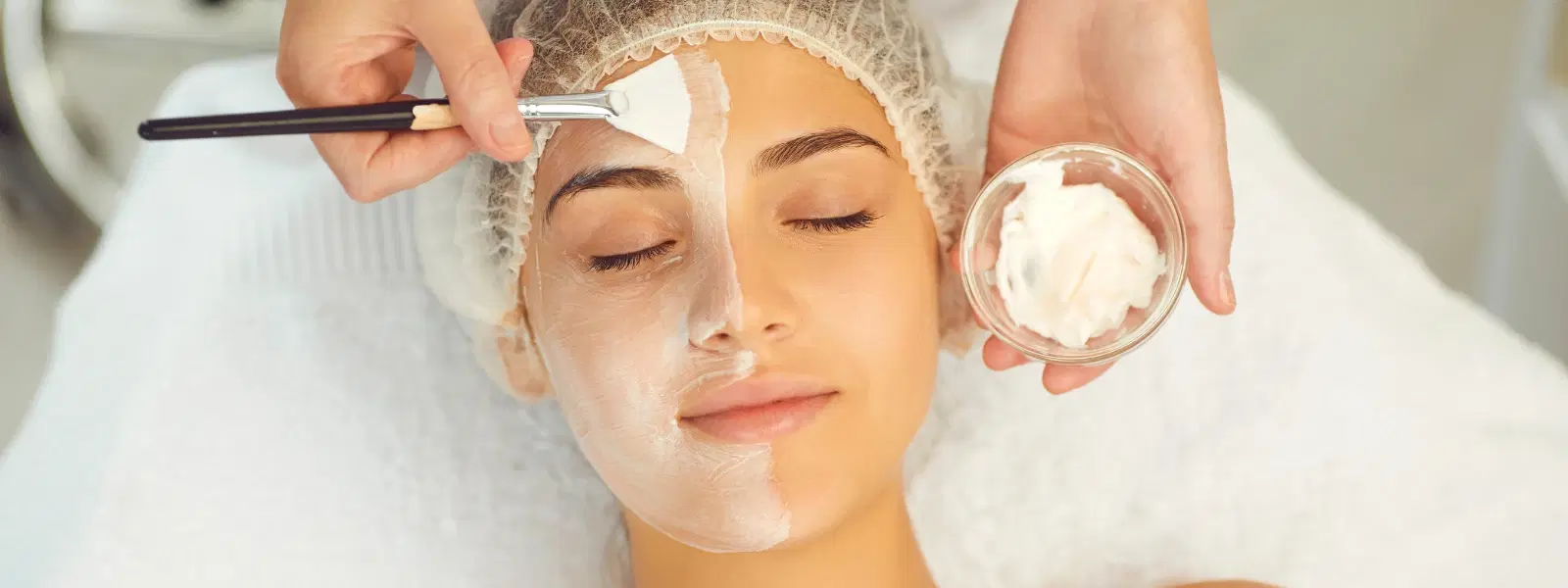
Beauty & Skincare
•03 min read
-9872eb55-9af0-4022-8644-bd8f05e8333e.png&w=3840&q=75)
Dry skin can be a puzzling challenge, especially when you feel like you are doing everything right by moisturizing. In this post, we reveal seven surprising reasons why your skin remains dry even after applying moisturizer. By the end of this guide, you will understand common dry skin causes and discover effective tips for dry skin care so you can achieve a hydrated, healthy glow. A great skincare routine is not just about hydration—it’s also a way to express self-care and curated style, aligning with Tata Neu’s vibrant and sophisticated vibe.
Sometimes, the moisturizer you use simply isn’t strong enough. Lightweight lotions may not provide the deep hydration needed for very dry or flaky skin. Thick creams and ointments are designed to lock in moisture and work better for skin dehydration remedies. Look for products that contain hyaluronic acid, ceramides, and glycerin, which help lock in moisture effectively. Avoid alcohol-based formulas that can worsen dryness. Additionally, consider products that emphasize sustainability and innovative beauty practices to align with Tata Neu’s values.
When you apply your moisturizer matters. One common mistake is waiting until your skin is completely dry. Experts recommend the "3-minute rule," meaning apply your moisturizer within three minutes of cleansing. This timing helps trap water on your skin, which is key in avoiding moisturizer not working to benefit your overall hydration.
Right after bathing, your skin’s pores are open and most receptive to locking in moisture. Failing to moisturize while damp makes it harder for the product to work effectively. Both morning and nighttime routines can be beneficial, as they offer an opportunity to reinforce the skin’s hydration levels throughout the day.
Sometimes, persistent dryness is more than just a skincare routine issue. Conditions like eczema or psoriasis can disrupt your skin’s natural barrier, making it tough to lock in moisture. Additionally, certain medications or acne treatments may also cause skin dehydration. This is a common dry skin problem that may require special care.
If you notice persistent redness, scaling, or itching along with dryness, it is important to seek advice from a dermatologist. A professional can help diagnose if an underlying skin condition is playing a role in why your skin is so dry even when you moisturize.
-5ba1f1f6-995b-4617-a1ff-43890351cff7.png&w=3840&q=75)
External elements such as cold weather, dry air, and harsh chemicals can steal the moisture from your skin. Indoor heating systems in winter and chlorinated water or long, hot showers can disrupt the skin’s barrier. These environmental factors are a major contributor to why some people find their moisturizer not working as expected.
Consider using a humidifier during colder seasons to help add moisture to the air. Avoid unnecessarily long or hot showers by switching to lukewarm water. Wearing sunscreen daily is also crucial because UV exposure can weaken your skin’s moisture retention over time.
Dead skin cells can build up and act as a barrier, preventing your moisturizer from penetrating deeply. Regular exfoliation removes rough, flaky skin and can improve the effectiveness of the products you apply afterward. However, it is important to exfoliate gently because overdoing it might further damage the skin barrier.
Choose a gentle chemical exfoliator, such as those containing lactic or glycolic acid, rather than harsh physical scrubs. Limit your exfoliation routine to one or two times per week. This balance helps in maintaining a smooth surface that can better absorb moisture.
There is a significant difference between dry and dehydrated skin. Dry skin lacks oil, while dehydrated skin lacks water. Even if you are using the best skincare for dry skin, you might need to add hydrating products to your regimen. Dehydration can exacerbate the appearance of dry, flaky skin, making it important to know how to hydrate skin effectively.

Layer your skincare routine by using hydrating toners with ingredients like aloe vera or rose water before moisturizing. By also including serums that contain hyaluronic acid, you enhance your skin's water retention capabilities. This simple addition to your routine can help prevent moisture loss and leave your skin feeling refreshed and balanced.
Did You Know? Timing and Technique Are as Important as the Product Itself
Applying moisturizer immediately after cleansing, when your skin is still damp, can boost hydration significantly. Studies suggest that this small, yet powerful adjustment may improve your skin’s moisture barrier, making it a game-changer in avoiding the plight of persistent dryness.
Your moisturizer might not be strong enough, or you could be applying it at the wrong time. Other aspects such as dead skin buildup or environmental factors may also lead to moisture loss.
The 3-minute rule advises applying your moisturizer within three minutes after cleansing to capture the moisture present on your skin.
Exfoliating to remove dead skin, choosing a heavier moisturizer, and incorporating hydrating serums into your routine can help. If dryness persists, consider consulting a dermatologist.
Use thick, oil-based creams and avoid harsh cleansers and hot showers. Additionally, use a humidifier in dry environments to combat moisture loss.
Dry skin even after moisturizing can be frustrating, but understanding the reasons behind it is the first step toward effective skin hydration. From product selection and application timing to addressing environmental factors and noticing the difference between dry and dehydrated skin, you can adapt your routine to achieve a more hydrated complexion. Experiment with these insights to refine your regimen and enjoy a healthier, more radiant skin appearance.